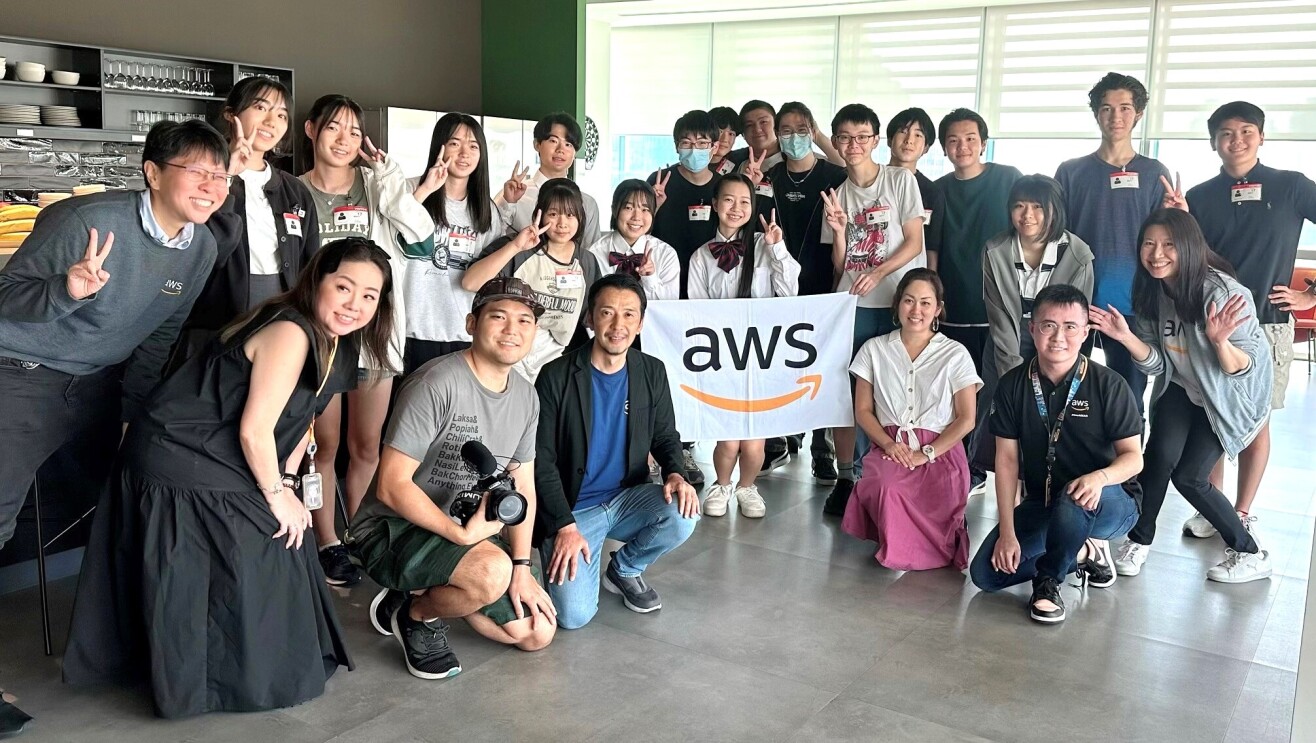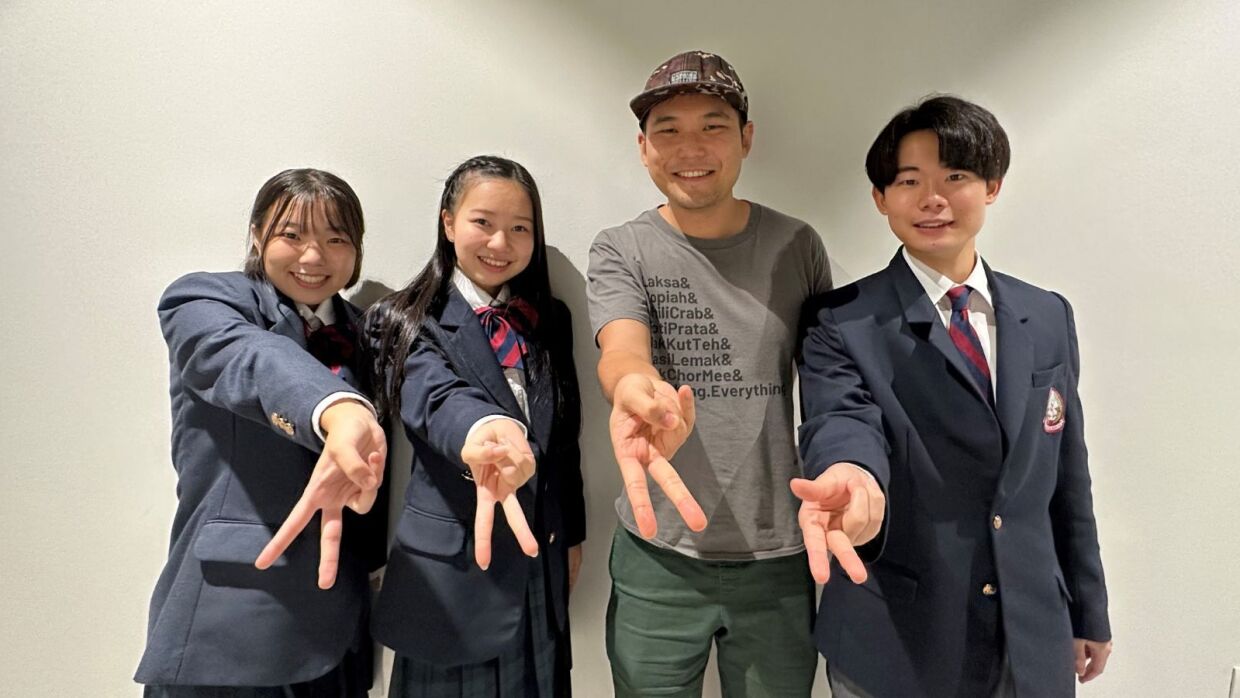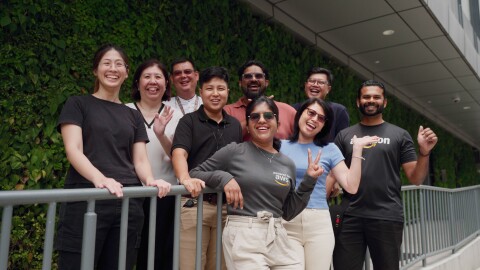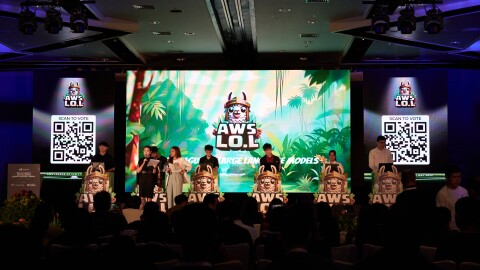There were the tangible office perks: The beer tap offering free-flow booze for evening events with customers and communities. The refrigerator stacked with a wide range of even more beverages. The private collaboration rooms. The foosball and pool tables, and more.
But for YouTuber Ghib Ojisan and a group of Japanese students who joined a recent office tour of AWS Singapore, it was the intangibles which proved far more impactful: The AWS culture, where employees are not afraid of failure; where projects get the go-ahead when 70% of the ingredients are in place; where PowerPoint slides are eschewed in favour of content-rich and well-built written documents.
According to one student, what he found most fascinating about Amazon was that “employees at Amazon are not afraid of failure. I like that everyone is encouraged to experiment, to learn from your mistakes when they happen, and move on to the next challenge. This must be an important ingredient behind Amazon’s culture of innovation”.
Ghib agreed: “I attended [Amazon’s] culture of innovation seminar and I learnt that Amazon has gone through many failures. But that’s OK! You can fail and you can learn from that, and you can create more innovative products.”

The school group of 16 and 17-year-olds were visiting from Waseda Shibuya Senior High School, a Japanese school that is affiliated with Waseda University in Tokyo, Japan. Together with Ghib, they spent a day at the AWS office in Singapore as part of their learning journey arranged by the school.
Here’s what they did.
Got inspired by Amazon culture
During the session, Amazon’s leadership principles and its culture of innovation provided much food for thought. Sandra Teh, AWS’s Chief Culture Evangelist for APJC and EMEA region, shared more about Amazon’s peculiar culture and mechanisms with the curious visitors.
Said Teh, a Singaporean who is fluent in Japanese: “We host many learning journeys for students and educators. Most people are surprised to learn that Amazon and AWS encourage employees to act with only about 70% of the data they wish they had, as waiting for 90% or more means you are likely moving too slow.”
Met with diverse AWS staff
Ghib and the students also met a diverse team of Amazonians with experience working and living in Japan and Singapore, and were impressed by how Amazon innovates on behalf of its customers by drawing on the perspectives and knowledge of employees from different backgrounds.
One of them was Ryoji Hayashi, Head of Localization, Strategy and Operations at AWS Singapore, whose sons had studied at their school.
Hayashi worked in AWS Japan for two years before transferring to Singapore to work with a highly international team. As one of the key hosts of the event, he took the opportunity to share some of his favourite Amazon leadership principles with the students, such as ‘Earn Trust’ and ‘Ownership’.
“I like how I get to work with people of different backgrounds and nationalities here. We do what is right and earn trust with one another by treating everyone and their ideas with respect,” he said.

Meanwhile, Iori Kudo, a recruiting manager for AWS for the Asia Pacific, Japan and Greater China regions, shared early-career tips for those interested in the tech industry, such as not to be afraid of trial and error at the start of one's working life, and not to underestimate the power of internships, which can lead to a long-lived career, or discovering one's interests.
Although Ghib has lived in Singapore for about five years, this was the YouTuber's first visit to an Amazon office, and he was surprised by how many effectively bilingual Japanese employees at Amazon and AWS are contributing to the digital economy in Singapore, while raising their families here.
His conclusion after the visit? “It really made me feel like I want to work at Amazon. The diversity, the inclusiveness, the company culture… I know it’s difficult to stay like that when a company gets so big and global but it seems like they’ve managed to do it.”
Don't miss: Ghib Ojisan's YouTube video of his visit to AWS Singapore with the students.













